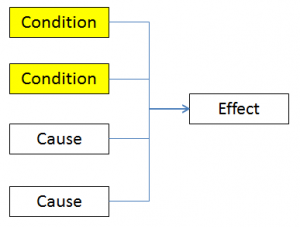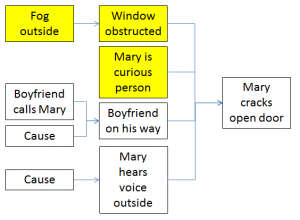Are you a reader of the classics, those works of literature that have stood the test of time? Do you think reading the classics would improve your writing?
Most people have a negative view of classical literature. They associate those books with difficult high school class assignments, slogging through indecipherable prose, writing mandatory reports, as well as answering impossible questions in class and getting the answers wrong. Little wonder the classics are not more widely read!
You may have your own reasons for not reading the classics. Here’s a list I came up with:
- They’re difficult to read. Often the language used doesn’t make sense to modern readers. If it does make sense, it’s often overly descriptive, or it dwells on single topics to the point of boredom.
- They seem irrelevant. A modern reader can’t relate to the characters in the stories, who face problems today’s readers don’t understand. As a result, the characters seem unrealistic.
- They’re not in my genre. There are several modern literary genres–science fiction, westerns, and mysteries, in particular–for which there are few examples among the classics. Those who enjoy reading from, or writing in, these genres will not feel any inclination to delve into the classics.
- Their style is archaic. One could never write that way for a modern audience and hope to get published. Therefore it seems unlikely a writer of today would learn much of value.
- I could never write that well. For those classics that can be read today with little trouble, an opposite problem occurs. A would-be writer might well compare his or her own prose to that of a literary master and become discouraged enough to give up.
- They won’t help me write for today’s readers. This is an extension of some of the reasons above. All the works we consider classics today were written for the audiences of eras now long past, not today’s reading public. Wouldn’t a writer’s time be better spent reading modern works?
Those are persuasive reasons, and perhaps they strike a chord with you. However, let’s consider my list of reasons for reading the classics:
- They’re about the human condition. Though individual situations and technologies in the classics seem historically quaint today, these works deal with timeless aspects of what it means to be human. In that sense, they will never become irrelevant.
- They help us understand history. The present we see around us is only a snapshot, a result of the great chain of causes and effects that is human history. Our present was forged by events in the past, events described in classical literature. In that respect, too, they remain relevant.
- They’re about philosophy. The classics often explore the deep thoughts, the perplexing ideas worthy of intense study. Questions about aesthetics, epistemology, ethics, logic, and metaphysics bedevil us still. They seem to have no right answers and yet we must choose some path to live our lives. If Socrates is correct that the unexamined life is not worth living, then you want the fiction you write to be about philosophy, too.
- In context, they make sense. Whenever I hear the finale of the “William Tell Overture,” by Gioachino Rossini, I imagine what it must have been like for the audiences in 1829 to hear it for the first time. They did not know a world where it was the Lone Ranger theme, endlessly repeated. Often a classic literary work represented a break with the past, a novel new way of writing which was fresh at the time. Though now commonplace or even passé, such works can suggest ways to make your own work fresh and different.
- They can improve your vocabulary. In classical literature you encounter such interesting words. Often they’re outdated and inappropriate today, but you might come across the perfect word for your story. In any case, you’ll increase your knowledge of English and the derivations and evolution of word meanings through time.
- They’re often referenced. As a writer, you’ll occasionally correspond with other writers or appear on panels at conferences or get asked questions at book signings. Someone will bring up a comparison to a classic work. If you haven’t read it, you’ll feel a little stupid. Best to avoid that.
- Stealing from them is legal. Modern writers often base their works on the classics. Hey, if it worked once for Shakespeare… It’s not uncommon to create a complete retelling of a classic work set in modern times with modern characters, and the similarities can be blatant or subtle.
- They’re examples of great writing. The classics have lasted because they are well written. Their authors were masters of putting words together. Maybe you and I could learn from their example. Even if we don’t attain their heights of grandeur, perhaps we can approach a little closer by studying them.
In conclusion, there are good reasons for and against. You’ll have to choose what’s right for you. As for me, I read about four or five classic books each year, roughly ten percent of my reading. Not yet a writer whose works are destined to be classics, I’m–
Poseidon’s Scribe












